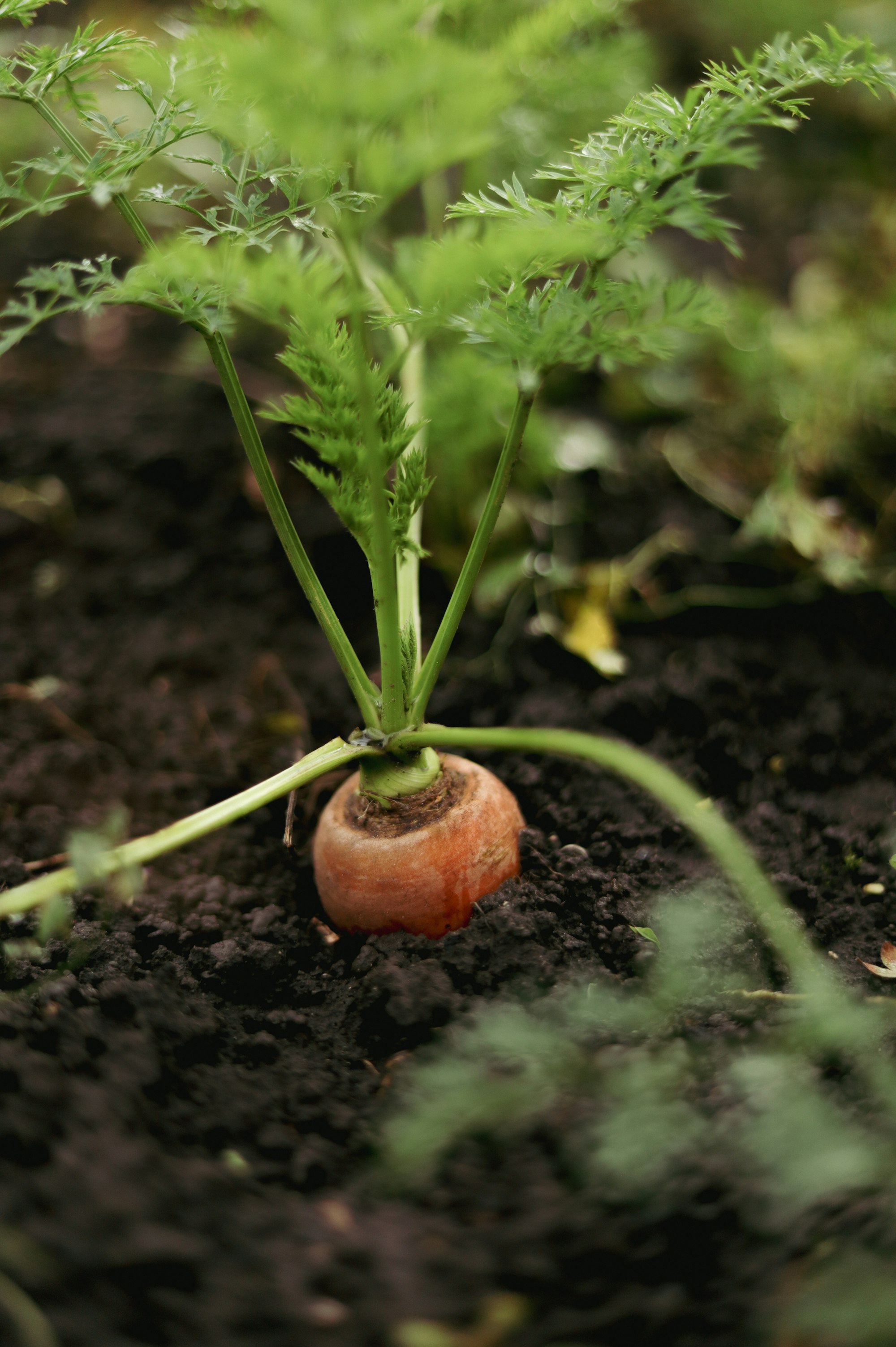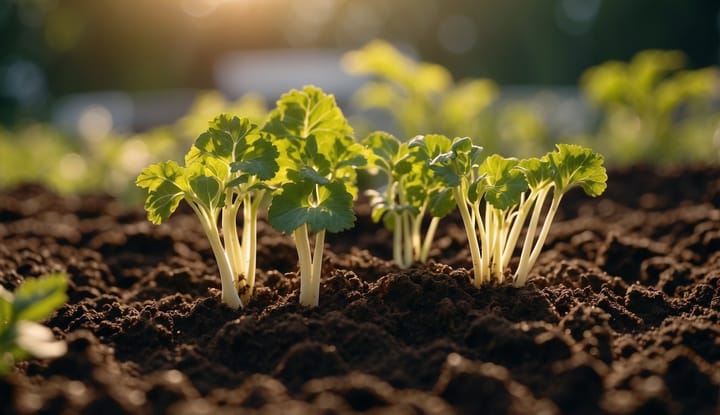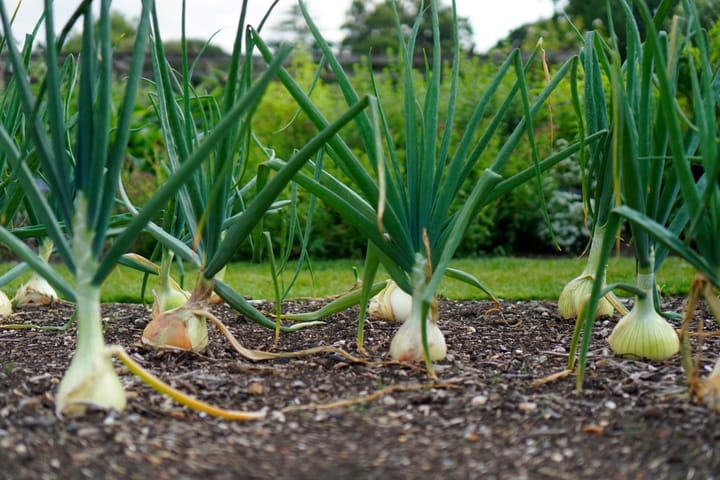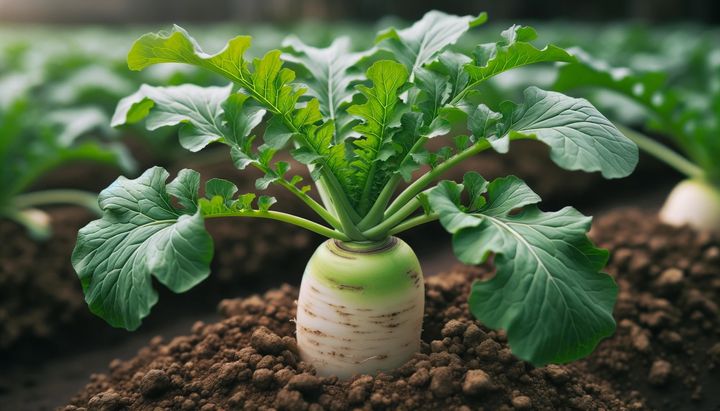How to Grow Carrots
Growing carrots is a rewarding and nutritious endeavor that can be done in various soil types and even in containers.

Table of Contents
When planting carrots, it's essential to choose a variety that thrives in your soil and climate conditions.
Sowing seeds ½ inch deep and 1 to 2 inches apart in rows that are 1 to 2 feet apart will facilitate healthy growth.
Full sun and well-draining soil provide the ideal environment for carrot plants to flourish.
About Carrot Plants
Carrots (Daucus carota) are a popular root vegetable that comes in various varieties and colors.
Some common varieties include Chantenay, Danvers, Imperator, and Nantes. They can be found in a range of colors, such as red, yellow, orange, purple, and white.
To grow carrots successfully, plant them in soft, airy soil with cool temperatures, ideally with nighttime temperatures dropping to about 55°F (13°C) and daytime temperatures averaging 75°F (24°C).
Sow seeds every 3 weeks until midsummer for a continuous harvest into fall. Carrots typically take 50 to 80 days to mature from seed to harvest.
Growing Carrots
Before planting carrot seeds, choose a garden spot with full sun and light, well-draining soil.
In early spring, loosen the soil through tillage or with a garden fork and mix in compost to improve soil structure and fertility. Aim for a soil pH between 6.0-6.8 and ensure the temperature is around 50°F (10°C).
Once the soil is prepared, sow carrot seeds in rows directly in the garden or pots and containers.
Rows should be spaced about 12-18 inches apart, and seeds should be sown about 2-3 inches apart.
You can mix radish seeds with carrot seeds to help indicate when the carrot seeds sprout, as radishes sprout quickly.
Thin seedlings to a 2-inch diameter spacing once grown 1-2 inches tall, ensuring the plants receive adequate light and airflow.

Caring for Carrot Plants
Sun and Temperature
Carrots thrive in full sun but can tolerate partial shade. The ideal temperature for growing carrots is between 60°F to 70°F (16°C to 21°C).
Water and Humidity
Keep the soil consistently moist, watering deeply every few days. Be careful not to over-water; roots can rot in overly wet conditions.
Soil and Fertilizing
Choose well-drained, sandy soil with organic matter mixed in. A pH level between 6.0 and 6.8 is ideal.
Avoid using high-nitrogen fertilizers, as they can result in hairy roots and less flavorful carrots.
Pruning and Propagation
Thin the carrot seedlings 1-3 inches apart to promote proper growth. Use mulch to suppress weeds and help retain moisture in the soil.
Troubleshooting Plant Problems
Growing Problems
To grow healthy and thriving carrots, choosing the right carrot variety is essential for your growing season and climate.
If you experience poor germination or misshapen carrots, factors such as soil type, depth, temperature, and moisture levels might be the cause.
Ensure that your seedlings are planted in loose, well-draining soil of appropriate depth in raised beds or containers to avoid stunted or deformed growth.
Monitoring soil moisture during germination and growing season is vital to prevent overly dry or wet conditions that can lead to complications.
Carrots can be finicky to germinate, which is why consistent moisture is necessary when sowing seeds.
Covering the seeds with a thin layer of mulch and using a rake to firm the soil will help retain moisture and improve germination rates.
Keep a close eye on your plant's foliage, as yellowing leaves or hairy carrots may signify nutrient imbalances. Adjust your fertilization regime accordingly for a successful harvest.
Pests and Diseases
Carrots, like any vegetable, can be susceptible to pests and diseases. Look for signs of infestation, such as root holes or chewed leaves.
Some common pests that affect carrots are nematodes, carrot rust flies, and aphids.
Many of these pests can be managed through proactive measures such as crop rotation within the same family or implementing natural predators like ladybugs to control aphid populations.
Diseases like leaf blight can also negatively affect stored carrots, so make sure to check your harvest for any signs of disease before storage.
To prevent carrot diseases, practice proper sanitation by removing infected plants and debris from your garden and avoid overwatering, which can create favorable conditions for pathogens.
Providing adequate spacing between plants and using pathogen-resistant carrot varieties can also help maintain a healthy vegetable patch.
Remember to inspect your overwinter vegetables, such as parsnips or carrots, for any signs of pest or disease damage before storing or consuming them.
Conclusion
Growing carrots can be a rewarding addition to your garden, as they are full of flavor and nutrients. Start by preparing the soil, removing debris, and amending it with compost or well-rotted manure for added nutrients.
Sow the carrot seeds directly into the soil about 1/4 inch deep, spacing them at least 1 inch apart, and give them full sun exposure.
Water the carrots gently and be patient, as they typically germinate about 2-3 weeks. Thinning the seedlings when they reach about 2 inches will ensure healthier growth.
Frequently Asked Questions
When is the best time to plant carrot seeds?
You can start planting carrot seeds as soon as the soil can be worked in the spring, even two to three weeks before the last frost. For a continuous harvest, sow seeds every 3 weeks until midsummer.
What is the ideal soil type for growing carrots?
Carrots grow best in loose, well-draining soil that is free of stones and debris. A sandy loam or loam soil with a pH between 6.0 and 6.8 is ideal for healthy carrot growth.
What are good companion plants for carrots?
Carrots benefit from companion plants such as onions, leeks, chives, and garlic, which can help repel pests like carrot flies. Other good companions include lettuce, radishes, and tomatoes.
How often should carrots be watered?
It's important to keep carrots consistently watered, providing 1 inch of water per week. In hotter and drier conditions, you may need to water more frequently, ensuring the soil stays moist but not soggy.
Can carrots be grown in containers or raised beds?
Yes, carrots can be successfully grown in containers or raised beds. Choose a container or bed that is at least 12 inches deep to accommodate the root development, and ensure the soil is loose and well-draining.


